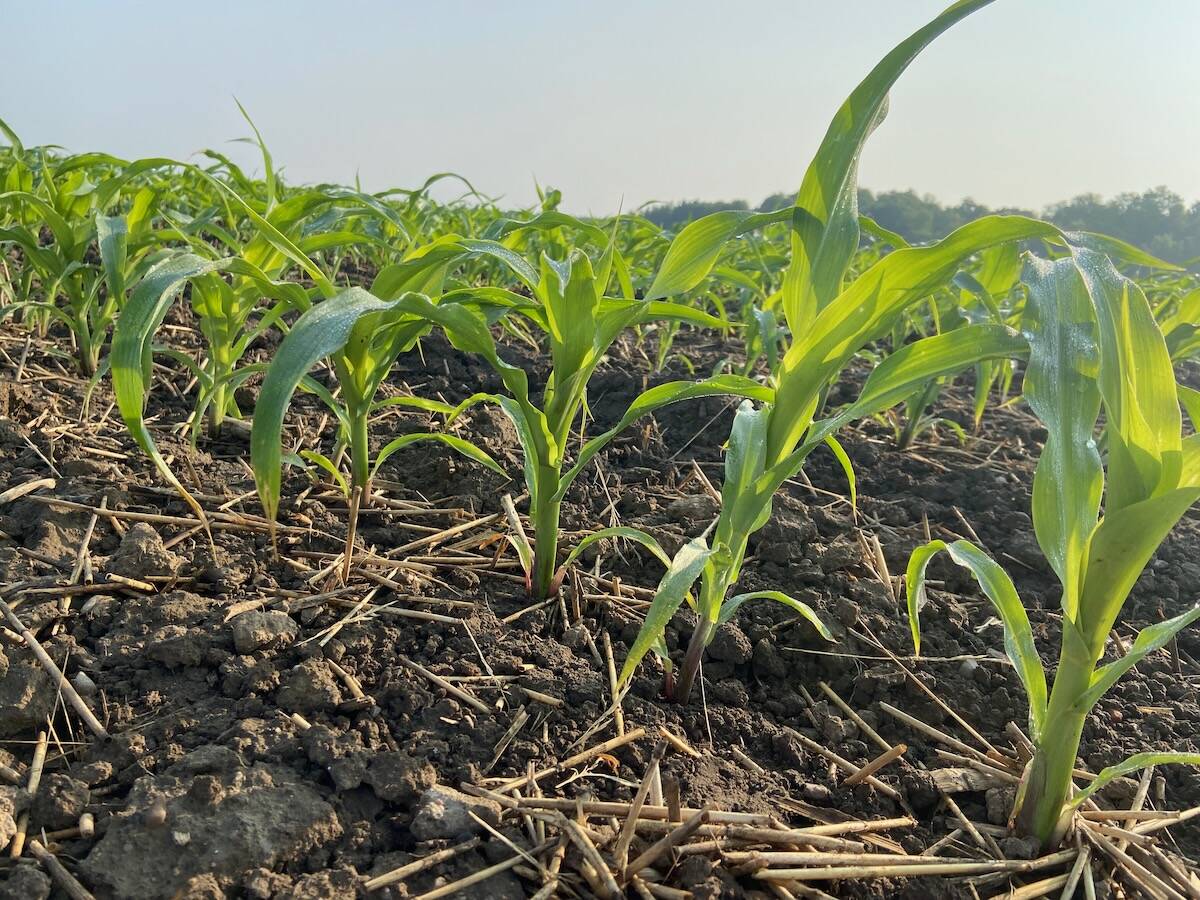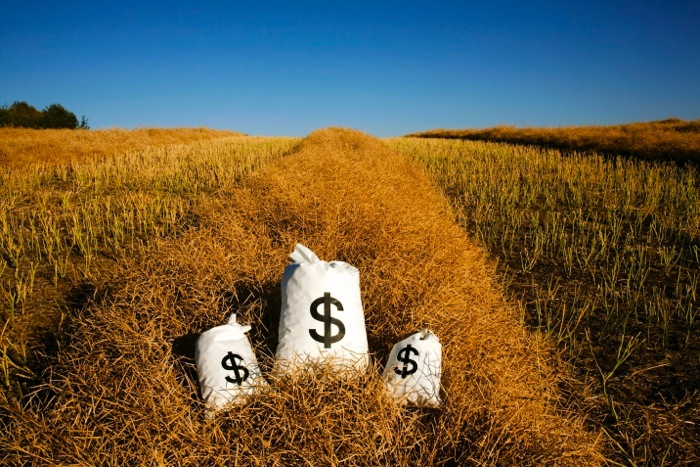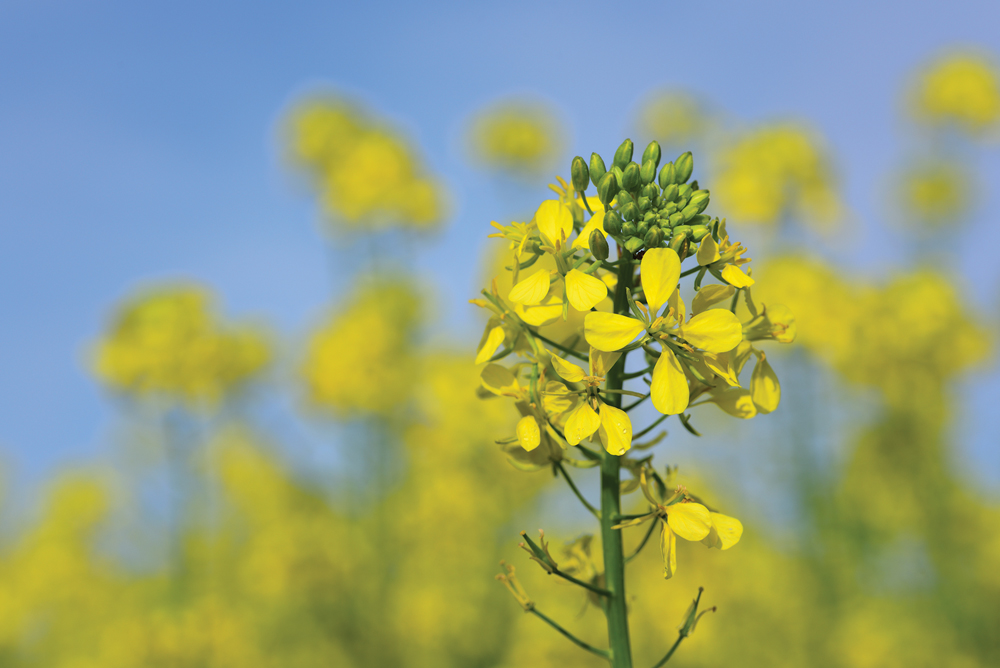Administering cash advances is a competitive business, which is why farmers can’t take a look at the Canadian Canola Growers Association’s (CCGA) books, the organization’s CEO says.
Rick White told the Manitoba Canola Growers Association annual meeting at Crop Connect Feb. 11, the CCGA handles more than a billion dollars a year, but unlike other producer groups, only farmer-elected board members can review its financial statements.

“We have significant commercial and competitive business sensitivities,” White said, noting he had heard “through the grapevine,” farmers were asking questions about the lack of transparency. “When you’re talking that big of a (cash advance) program there are tremendous business sensitivities. And that is why we don’t disclose our full financial statements to the public.”
Farmers from the Ontario, Manitoba, Saskatchewan, Alberta and British Columbia canola associations, make up its 10-member board.
“There is full disclosure and full discussion,” White said, “so there is a lot of internal transparency.”
The CCGA was formed in 1984 by the western Canadian canola grower associations to give canola farmers access to cash advances under the Advanced Payment Program operated by Agriculture and Agri-Food Canada (AAFC).
Read Also

Can we trust the USDA crop data anymore?
Indications that farmers, analysts and traders have started to lose trust in data from the United States Department of Agriculture are hardly a surprise.
Today the CCGA is one of 50 organizations in the cash advance business for canola as well as a long list of other crops and livestock. The CCGA issues around 11,000 advances of up to $400,000, totalling as much as $1.6 billion annually. Farmers pay back the advances when they sell their produce. The first $100,000 is interest free and the rest at a low interest rate.
Long history
The first cash advance program was introduced for Canadian Wheat Board crops in 1957 by John Diefenbaker’s Conservative government.
A separate, but similar program, was introduced in 1977 for non-board crops.
The program loans farmers money so they aren’t forced to sell when prices are depressed.
While the federal government guarantees the advances, it doesn’t provide the money; the CCGA borrows it from commercial lenders. White said because CCGA is lending more than a billion dollars a year it borrows from three banks — CIBC, Rabobank and BMO. Neither the lenders nor the CCGA want the terms of the loans, including interest rates, disclosed for competitive reasons.
“We do compete with other administrators of the program, but probably more importantly we compete with the banks, credit unions, FCC (Farm Credit Canada) and input supply dealers,” White said. “Those are competitive aspects where we want to position this program for the benefit of farmers given they have other financing options out there…
“So me and the board will not, cannot, disclose sensitive financial information that could undermine your organization’s ability to do business and generate value for you. It would be irresponsible for us to do that.”
Some data
However, White did share some financial information about the CCGA, which also develops policy on behalf of canola growers and lobbies for them nationally and internationally.
The CCGA, which represents 43,000 canola growers has 60 employees, many of whom work on cash advances. The CCGA’s annual payroll is $3 million, with an operating budget of $15 million and a net worth as of $20.3 million March 31, 2015.
“When you look at $20.3 million, it’s a very modest number considering the size of the business we do,” White said. “It’s a little more than a year of operations.”
The CCGA charges farmers $150 per cash advance application, which “is below the cost,” White said.
“We extract earnings from discounts on borrowing rates we negotiate with the banks and these earnings are created by the value of CCGA operations and it is this newly created value that is captured by CCGA on behalf of you the farmers we represent,” he added.
In an interview a year ago White said the CCGA isn’t trying to make a big profit from cash advances, but doesn’t want to lose money either.
While the government guarantees advances, should a farmer default and if the CCGA failed to do its due diligence the CCGA could be on the hook for the money, White said.
“Never happened, but theoretically it could, so we’re managing risk,” he said.
“All the money we make is plowed back into the operations, providing better service to farmers,” White said. “So the bottom line is — and I’ve given you some pretty decent numbers… the CCGA board, your colleagues, make strategic decisions for CCGA’s financial resources, balancing the operational needs of the business associated with managing a large treasury operation… to ensure the viability and stability of your organization and investing in projects and initiatives that return benefits to you.”
















